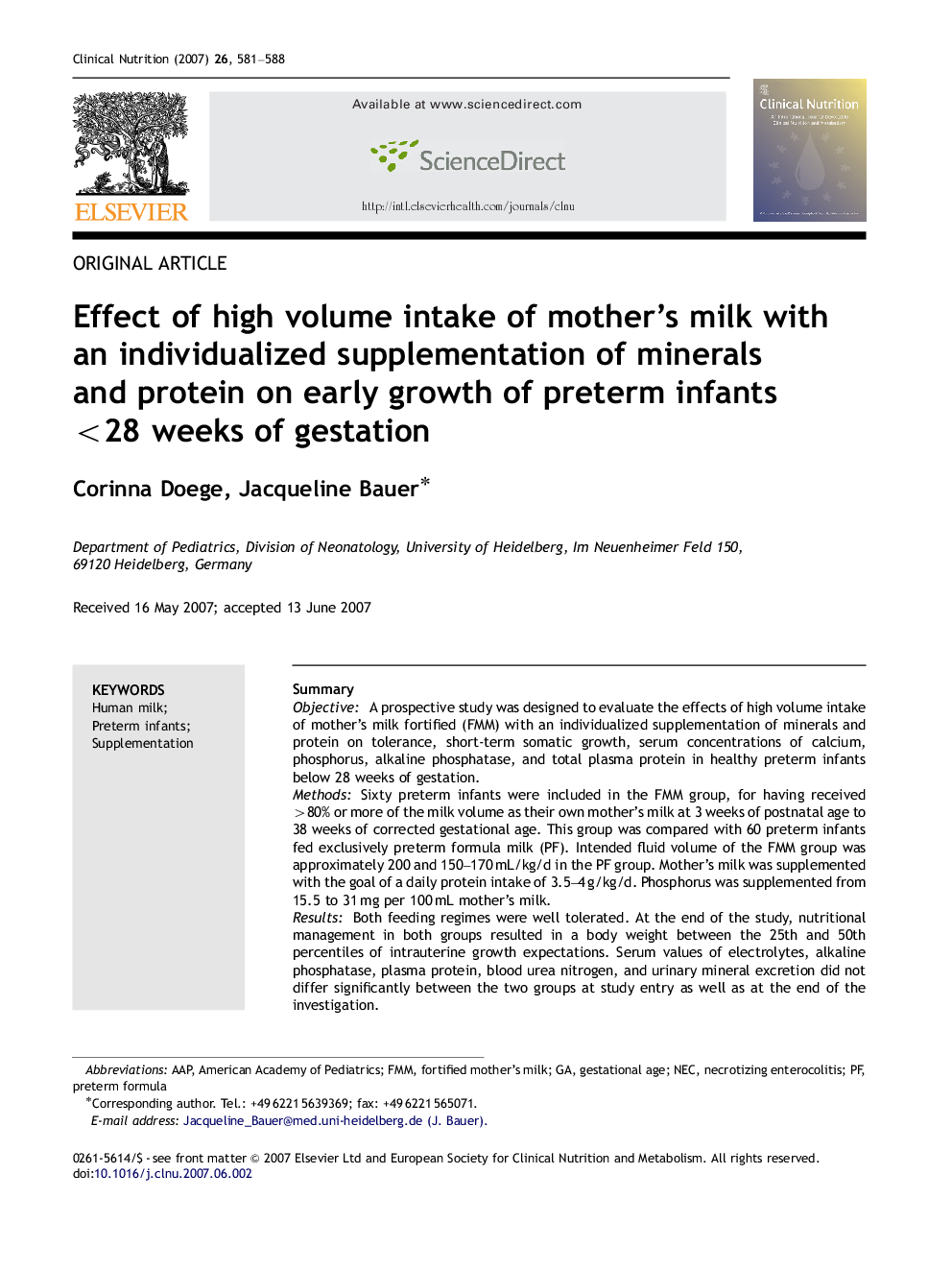| Article ID | Journal | Published Year | Pages | File Type |
|---|---|---|---|---|
| 2684429 | Clinical Nutrition | 2007 | 8 Pages |
SummaryObjectiveA prospective study was designed to evaluate the effects of high volume intake of mother's milk fortified (FMM) with an individualized supplementation of minerals and protein on tolerance, short-term somatic growth, serum concentrations of calcium, phosphorus, alkaline phosphatase, and total plasma protein in healthy preterm infants below 28 weeks of gestation.MethodsSixty preterm infants were included in the FMM group, for having received >80% or more of the milk volume as their own mother's milk at 3 weeks of postnatal age to 38 weeks of corrected gestational age. This group was compared with 60 preterm infants fed exclusively preterm formula milk (PF). Intended fluid volume of the FMM group was approximately 200 and 150–170 mL/kg/d in the PF group. Mother's milk was supplemented with the goal of a daily protein intake of 3.5–4 g/kg/d. Phosphorus was supplemented from 15.5 to 31 mg per 100 mL mother's milk.ResultsBoth feeding regimes were well tolerated. At the end of the study, nutritional management in both groups resulted in a body weight between the 25th and 50th percentiles of intrauterine growth expectations. Serum values of electrolytes, alkaline phosphatase, plasma protein, blood urea nitrogen, and urinary mineral excretion did not differ significantly between the two groups at study entry as well as at the end of the investigation.ConclusionsMother's milk fed at higher volumes with an individualized fortification of minerals and protein provides sufficient nutrients to allow adequate growth of preterm infants <28 weeks of gestation.
